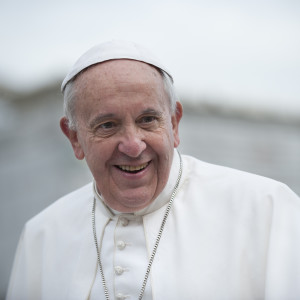Editor’s Note: See here for an alternative view on the pope’s leadership: Point: Pope Francis and the Measure of Greatness.
It’s hard to dislike Pope Francis as a man. He is affable, has a winning smile, likes to hug children and has the most engaging way of throwing journalists off their game.
Unlike his predecessors, who were a bit more measured in the way they communicated (and in the case of Pope Benedict XVI, infinitely more measured,) Francis is much more of a pastoral cleric who takes his role as shepherd quite seriously. And that is part of the problem.
I am not a theologian, nor do I presume to have the knowledge and specialized expertise of a canon lawyer. My opinions are based entirely upon my fifty-some years of living a Catholic life with a view from the pew, so to speak. I was taught by the good Sisters of Mercy for most of my educational experience, and even chose a Catholic institution when I pursued a law degree. I attend church regularly, and am far from the stereotype of the “cafeteria Catholic,” unlike so many of my generation.
You can check off the topics, and I’m in sync with the church: Abortion is not just a sin, it is murder. Same-sex marriage violates the teachings against the essential value of one man, one woman in spiritual union. Artificial birth control, while necessary from a pragmatic standpoint in a world with limited resources, flies in the face of Catholic doctrine that each instance of human intercourse must be open to the creation of life. Secular divorce does not extinguish the lifelong, sacramental nature of a religious marriage. A female priesthood is not necessary to elevate my gender, because we have always been held in high regard through the Marian veneration.
I would, then, be the archetype of the “good sheep” who did not stray.
Increasingly, I am getting the sense that Pope Francis does not speak to me. He has been looking over my head to gather the lost ones, the prodigals who have strayed from the church because of disagreement with her precepts or dissent from her standards. And while I understand that this is the goal of evangelism, and that the pope as the head of the international church is in the “business” of bringing souls into the family business, I can’t help but feel that some of the steps that he has taken are off-putting to those of us who accept the beauty and grace of what we were taught from infancy.
The idea that Pope Francis is the greatest prelate in modern times is one that many in the secular world, and some in the religious world, have embraced wholeheartedly. Perhaps it is because his style is warm and welcoming, and his attitude of tolerance seems designed to spread the holy message to those who might otherwise close their ears against it. To them, being all things to all people and having a large tent is more important than emphasizing certain core, eternal principles.
I would respectfully suggest that they are both incorrect on the merits of that argument, and incorrect in their perception of Pope Francis. While I do think that he is more open to accepting human frailty as a given and trying to bring forgiveness rather than chastise those who fall short, the idea that Pope Francis is in any way changing fundamental church doctrine is erroneous.
He has talked about streamlining the process through which annulments can be obtained, but he has not said that annulments are good things in and of themselves. He has made it easier for women who have had abortions to seek absolution, but he has not said that abortion is not sinful. In fact, he has made it quite clear that it is the greatest sin that one human being can commit, an outrage against nature and humanity. He has said “Who Am I To Judge” when discussing the issue of homosexuals in the church, but he has not said that homosexual acts are now forgiven, much less accepted.
What Pope Francis has done is to try to shift the focus of Catholic debate to how do we make people feel welcomed and loved, as opposed to how do we make them aware of their sinful nature. The tone has changed, and it is a monumental shift to those of us in the pews. But the fundamental doctrine has not.
That is why I think it is far, far too soon to anoint Pope Francis as the greatest prelate in modern history. He has brought a happier expression to a weathered face, one battered by scandal and hostility, and yes, discrimination.
But it remains to be seen if his outreach to the lost will strengthen the church, or alienate those who never wandered off in the first place.

